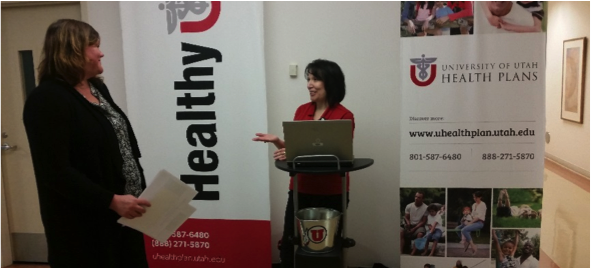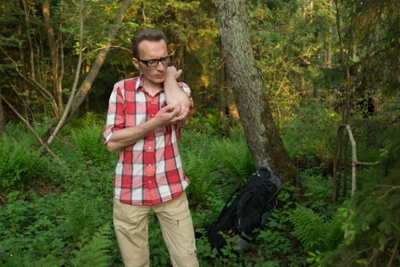UNIVERSITY OF UTAH HEALTH PLANS MOBILE SERVICE AND SALES CENTER
University of Utah Health Plans (UUHP) is looking for innovative ways to enhance consumer experience. One way they are accomplishing this is by taking their world-class customer service out of the office in Murray and hitting the road. UUHP is piloting a new mobile service and sales center. 
Wish you could get in-person, one-on-one help with your health insurance plan? You are in luck.
Have a question about your health insurance coverage?
Is your doctor covered?
Do you need assistance reading your claims or explanation of benefits?
Interested in becoming a member?
University of Utah Health Plans is currently stationed at different University of Utah Campus and University of Utah Hospitals and Clinics locations throughout the month of May to answer health insurance questions for members. Please visit our website uhealthplan.utah.edu to find a complete list of our locations.
University of Utah Health Plans administers:
- University of Utah’s employee plan, University Health Care Plus
- Healthy U Medicaid
- Healthy Advantage Plus Medicare
- Healthy Advantage Special Needs Medicare

TRICKS TO MAKE HEALTHIER FOOD CHOICES
You’ve heard to never go to the grocery store hungry. But did you know it’s what you eat that truly matters?
A new study published in the journal “Psychology & Marketing” found that people who ate an apple before shopping bought more fruits and vegetables than those who didn’t eat one.
Click here to read the full story.
For more expert health news and information, visit healthcare.utah.edu/healthfeed.
By University of Utah Health Care, Office of Public Affairs

Does it seem like mosquitoes prefer to snack on you more than on other people? A new study may explain why. Scientists in London looked at 18 pairs of identical twins and 19 pairs of fraternal twins. They asked each twin to put a hand in a box full of hungry mosquitoes.They learned that identical twins, who have nearly the same DNA code, attract mosquitoes at about the same rate. Fraternal twins, on the other hand, who have about half their genes in common, showed greater differences in their level of attractiveness. The results suggest a genetic basis for why mosquitoes prefer some people to others.If researchers can figure out which genes are involved, they may be able to develop more effective mosquito repellents.
Until then, health experts recommend using a bug repellent containing DEET. Apply it sparingly to the ears, nape of the neck, hands and other exposed areas.
A repellent with 25 percent DEET should give you five to six hours of protection, says Thomas Miller, M.D., an internist at University of Utah Health Care. If you’re going to be outside for only an hour or so to take a walk or do some gardening, you can use a lower concentration. Repellents with concentrations of 50 percent or 100 percent DEET offer no extra protection, the Centers for Disease Control and Prevention says.
Don’t rely on so-called natural remedies. “In terms of oils and vitamin supplements, there’s just no studies that show that those things work,” Miller says.
What you wear can help. Wear long sleeves, pants and a hat to reduce the amount of exposed skin for mosquitoes to bite. You can purchase clothes that contain the chemical repellent permethrin, or buy a spray and apply it to clothes you already own. (Permethrin should not go on your skin, though.)
“Stay away from areas where there’s stagnant water, which is where mosquitoes tend to breed,” says Scott Youngquist, M.D., an emergency physician at University of Utah Health Care. “They also tend to come out more at night and dusk. They don’t like to be out in bright sunlight.”

